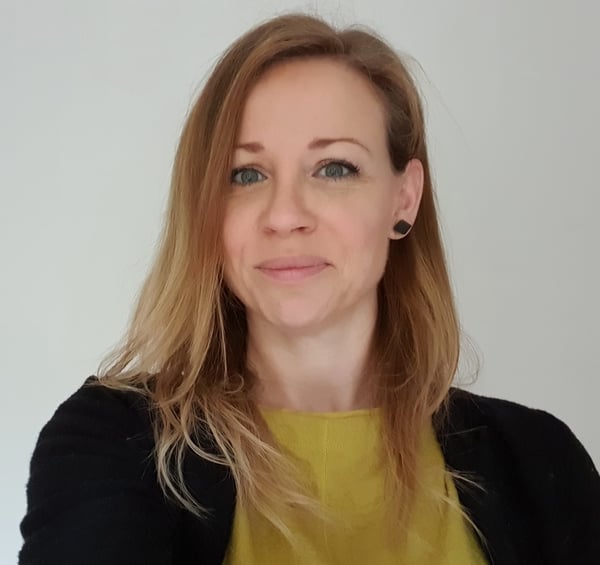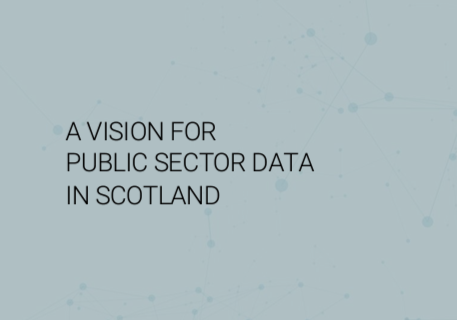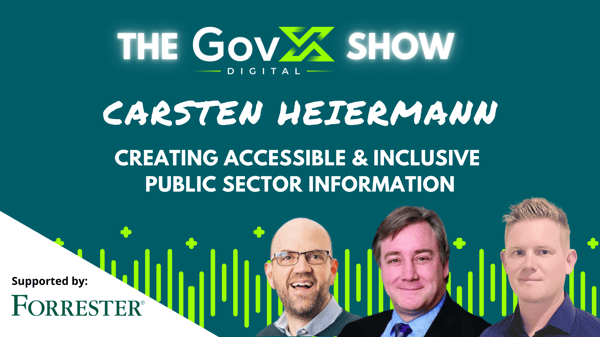In conversation with the Head of Geospatial at ONS
Olive Powell is Head of Geospatial at the Office for National Statistics. She co-founded Women+ in Geospatial in March 2019, following many years of being the only woman in the room. “Like many technology sectors, the geospatial industry has been suffering from a lack of diversity for many years,” she tells Government Transformation Magazine.
Powell was recently presented with the Diversity, Equity and Inclusion Trailblazer award by the World Geospatial Industry Council, in recognition of her activism in promoting inclusivity in the field.
She shares her insights on what can be done to improve diversity and fairness within tech teams - and why it is so important for future innovation in the sector.
As an advocate for diversity in the geospatial sector, what does this entail?
I first got involved in inclusion work after years of feeling isolated and not represented at events. It was rare when I would see a woman on the stage of conferences.
I co-founded Women+ in Geospatial (the plus means it includes women and.jpg?width=250&height=236&name=20201110_085942%20(1).jpg) under-represented genders) with a few others and built a strong global community of geospatial professional across the globe. We support each other in our work and career. As Director, I helped grow the network, set the vision for the organisation, and build our visibility and reputation.
under-represented genders) with a few others and built a strong global community of geospatial professional across the globe. We support each other in our work and career. As Director, I helped grow the network, set the vision for the organisation, and build our visibility and reputation.
I contributed to many advisory groups for national and global geospatial events (including the UN events) always challenging when line-ups lacked diverse representation, supporting agenda development, and encouraged the introduction of Equality, Diversity and Inclusion (EDI) programme of activities to raise awareness and encourage healthy debate.
What does inclusivity mean today and why is it important?
The importance and advantages of having an inclusive workplace and diverse workforce and leadership has been widely publicised. There are plenty of evidence showing that diverse representation at work increases productivity (inc. profits although not relevant in the public sector), creativity and services to customers.
For me, it’s about having a growth mindset, wanting to continuously improve and being empathetic to others’ experiences. As we often make judgements from our own experience, it’s even more important to have a diverse workforce. The more diverse an organisation or a sector is, the more in tune with the stakeholders’ needs it can be without unconsciously favouring a perceived “majority” of needs.
The Geospatial industry has a lot of young talent from diverse backgrounds which will no doubt shape a new dynamic in the years to come. However, the leadership picture is far from being diverse. We need to leave space for more role models to encourage our diverse new generations to join and stay in the geospatial sector. It’s such an exciting sector to work in! Leaving space though is a challenge and can be hard for existing leaders. It takes a lot of confidence and a low ego, for leaders to let go of their influencing power and let someone else (less senior and from another group) do the talking…
For event organisers, magazines and media providers, it is imperative to actively seek to provide that same platform offer to leaders to others, and promote an inclusive debate. We need younger and future leaders from other backgrounds to be more visible and given a voice on where the industry should be going. I can guarantee that if we were doing more of it, there would be far greater engagement and readership!
What steps can tech teams take to be more diverse and inclusive?
There is no silver bullet, and I am not an HR or recruitment specialist but there are some common sense approaches. There are lots of advice online than people can pick up with regards to inclusive recruitment, etc. I always reflect on this when recruiting a new team. Sometimes, it is out of our control. Nowadays, the private sector offers far more attractive salaries than the public sector. But researching this, I was pleased to see that being able to offer competitive salaries, only goes a certain way to attract diverse talent. A study from CNBC found that 80% of employees nowadays want inclusive companies.
Personally, the main obstacles and challenges come down to our own behaviours and willingness to change. Being more diverse and inclusive starts with being open minded, interested in new perspectives, curious about others, learning to be tolerant and empathetic, and feeling confident to challenge behaviours and processes when they are wrong.
There is also a strong push for all organisations to increase their representation of “minority groups” and we often focus on the intake of diverse workers at recruitment stage. It’s not about just recruiting diverse, it’s about retaining talent and remaining diverse and ensuring that everyone has a chance, feels included, valued, and has the confidence to move up the ladder.
Reputation goes a long way for organisations to recruit, but retention is down to the actions of that organisation. It helps to lead by example; ensuring the leadership makeup of the organisation is also as diverse and representative of its workforce and society.
It’s important for leaders to act consciously and seek to understand the issues and challenges specific to their organisations with regards to diversity and inclusion, and for them to be on that continuous improvement trajectory and learn from past initiatives and trials.





